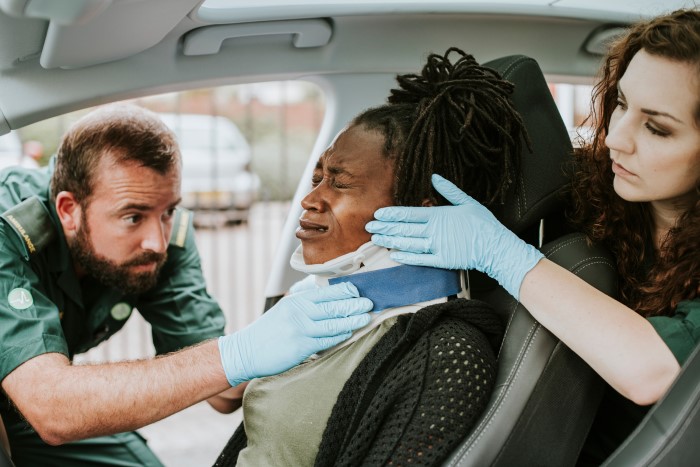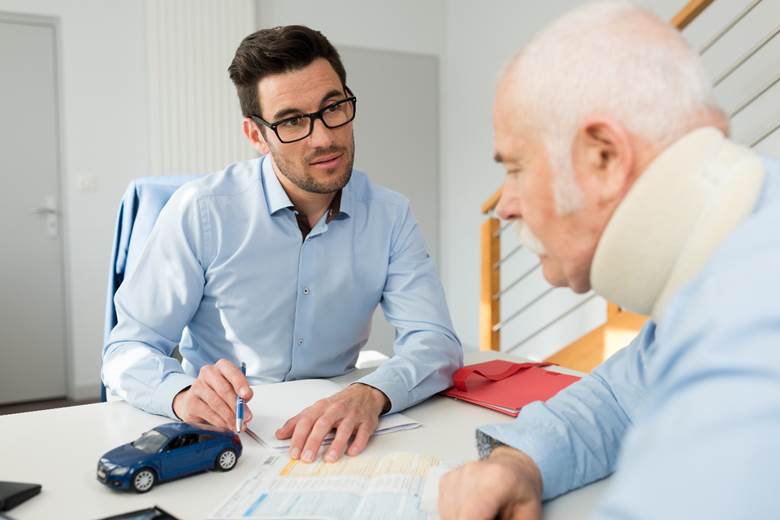Few things feel more chaotic than that awful split second between cruising down the road and suddenly getting slammed by a reckless collision. One minute, you’re vibing to tunes; the next, your car is mangled metal, and your head is spinning.
Annually, road accidents tragically claim the lives of over a million people worldwide and result in injuries for an additional 20 to 50 million, according to the World Health Organization. So, if you’ve ever experienced the harrowing aftermath of such an accident, you have an idea of the profound and lasting impact it can have on your life.
But as dazed and confused as you probably are post-crash, it’s crucial to know what to do after suffering a personal injury. So let’s get into these must-know action items.
1. Safety First
This is all about ensuring that you and anyone else involved are out of harm’s way. If it’s a road accident and you’re able to, move vehicles to the side of the road to avoid causing further incidents.
If it’s unsafe to move a vehicle or if injuries prevent it, turn on your hazard lights to alert other drivers. In a workplace or public setting, it might mean securing the area to prevent additional injuries, such as cordoning off a spill in a store aisle.
The key here is not to exacerbate the situation or put anyone at further risk. And, of course, if there’s a serious threat like fire or a hazardous spill, prioritize getting everyone to a safe distance.
2. Seek Medical Attention
This one’s tricky because sometimes you don’t feel hurt right after an accident, thanks to adrenaline. But, you know, internal injuries or things like whiplash can sneak up on you.
It’s always a good idea to get checked out by a professional as soon as possible after an accident. They can spot things you might miss that are important for your health.
Plus, having a medical record immediately after the accident can be crucial if you need to make any insurance or legal claims.
3. Report The Accident
This one varies depending on where the accident happens. If it’s a car crash, you must report it to the police, especially if there’s significant damage or anyone’s injured.
It’s not just about following the law; a police report can be vital if there are insurance or legal issues later on. For workplace accidents, you need to tell your supervisor or safety officer, as there are usually specific procedures and paperwork to fill out.
And if you’re in a store or another public place, letting the management know is essential. This is not just for your own incident report; the management might need to take action to prevent further accidents.
Reporting also creates a formal record of the event, which is crucial if there are any subsequent claims or investigations. In such cases, legal advice from a knowledgeable source like a Hartford injury attorney or others near you can be instrumental.
These pros can ensure that your rights are protected and you are justly compensated for any injuries or losses sustained
4. Document Everything
Right after the accident, snap as many photos as possible of the scene. This includes pictures of the vehicles if it’s a car accident, property damage, or visible injuries.
It’s also a good idea to capture wider shots of the area to give context. For example, if road signs or weather conditions played a role, get those in your pictures too.
Then grab a notebook or use your phone to jot down everything you remember. This could be things like what you were doing right before the accident, how it happened, the time, and the weather conditions.
It’s amazing how quickly these details can fade from memory, so writing them down ASAP is critical.

5. Gather Information
You want to exchange names, addresses, and contact details with everyone involved. If there are other drivers, get their insurance information and the vehicle registration details. Don’t forget to note down the make, model, and color of their cars too.
Witnesses can be incredibly valuable, so if there are people around who saw what happened, politely ask for their contact information too. They could provide an impartial perspective that might be helpful later on.
6. Avoid Admitting Fault
This one can be tricky, especially when you’re in the thick of the moment. Even a simple ‘I’m sorry’ can sometimes be misconstrued as an admission of guilt.
So try to keep the conversation factual and to the point. Exchange the necessary information, but steer clear of discussing the details of the accident or who might be at fault. It’s often best to let the police and insurance companies handle that part.
7. Notify Your Insurance
It’s essential to let your insurance company know about the accident as soon as you can. When you do, stick to the facts.
Describe what happened clearly and objectively, but be careful not to guess or make assumptions about anything you’re unsure of. Remember, your insurance company will use the information you provide to assess the situation, so accuracy is key.
8. Keep Track Of Medical Treatments And Expenses
Keep a detailed record of all your doctor visits, any treatments you receive, medications prescribed, and how much everything costs. This includes things like travel expenses to and from the hospital or clinic.
If you can, it’s also helpful to note how your injuries affect your daily life, like if you’re missing work or can’t do certain activities. This information is crucial not just for insurance purposes but also if you need to provide evidence of your expenses and the impact of the injury on your life.
9. Consult A Personal Injury Lawyer
If there’s any uncertainty about who’s at fault or if you’re facing hefty medical bills or losing income because you can’t work, getting some legal advice can be a game changer.
Personal injury lawyers can give you a clear understanding of your rights and help you figure out the best course of action. Plus, they can handle negotiations with insurance companies and the other parties involved so that you can focus on your recovery.
In Closing
There you have it, steps that can change your circumstances post-accident. Hopefully, you’re walking away feeling prepared and empowered instead of panicked and confused.
If, at any point, things start feeling too complex, do not hesitate to call in an expert personal injury lawyer for guidance. Their expertise can prove invaluable in securing the exact reimbursement for damages while you focus on your healing.




